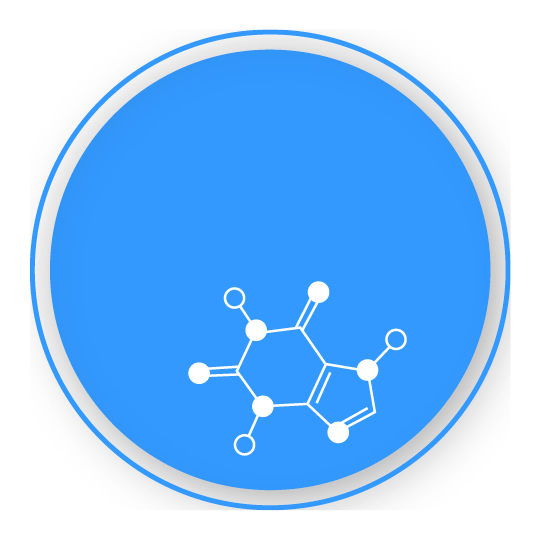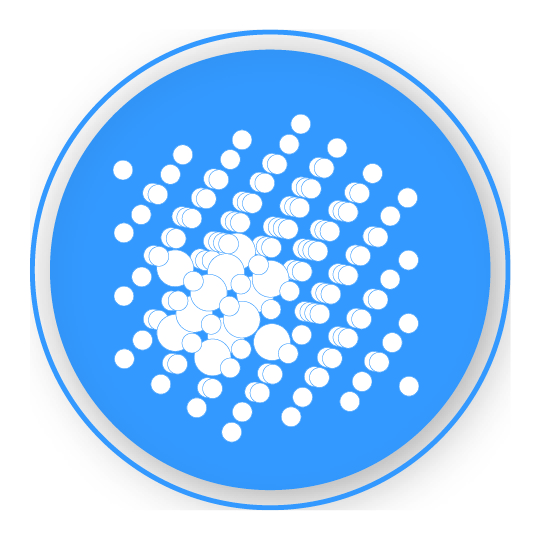Primarily institutes from the Fraunhofer-Gesellschaft that are specialized in material science and engineering have joined Fraunhofer MATERIALS. Also, additional host institutes participate in the Group with expertise on systems and process engineering from their individual areas of application. In this manner, the Group pools together very wide-ranging knowledge and experience along the entire value chain and in all classes of materials.
OUR CORE COMPETENCIES
MATERIAL DEVELOPMENT
Materials play a special role in most product innovations. Material innovations either provide
impetus for the development of a new product or the product development itself defines a specific
profile of requirements for developing or improving new materials. According to studies made on
the subject, approx. 70 percent of all new products are based on new materials. In addition, new
materials are increasing in significance in terms of cost.
The institutes of Fraunhofer MATERIALS contribute extensively to innovation processes in the field of material development. Some examples for successful material development at Fraunhofer are high-performance polymer fibers for lightweight construction, ceramic fibers for high-temperature applications and matrix or composite fibers optimized for special areas of application. Further developments are found in nanoscale, semi-conductor, phase change or “smart” materials. Special ceramics also belong in the R&D range as well as functional polymers with specific properties (electric, electro-optical, optical and mechanical) or the specific adjustment of property profiles by means of new additives. Particular emphasis is placed on the development of bio-based and recycled materials.
TECHNOLOGY DEVELOPMENT
Modern materials must meet the high standards in terms of their properties of characteristic
profiles. Not only should they be light, resistant strong to loads, bio-compatible, durable,
and “smart”, but also their manufacture, processing and disposal should be economic and
resource- and material-efficient. In order to achieve these and similarly complex requirements,
a wide spectrum of sophisticated material technologies is necessary in addition to the material
development itself. The manufacture, treatment and processing steps are often decisive as to
how efficient and competitive a material and the final product made from this material finally
are in practice. With the development of advanced material technologies, the institutes of
Fraunhofer MATERIALS make considerable contributions to meeting economic and societal challenges. Among the institutes areas of operation are the development and the application of selected technologies for surface finishing, coating and the functionalization of materials as well as the further development and optimization of joining and processing techniques or the development of entirely new processes and methods such as in the area of polymer synthesis, microforming, rapid prototyping and recycling.
EVALUATION OF THE APPLICATION BEHAVIOR
Fraunhofer scientists are commissioned by their customers to develop materials and technologies suited to individual application purposes, whether for vehicle construction, medical technology, energy production, or for static or highly dynamic stress. In order for the material
and the components made from this material to actually prevail in practice, the different stages of the development process are accompanied by the appropriate method of analysis, characterization, testing and, finally, quality control and field tests. The Fraunhofer institutes within the Group offer a comprehensive range of methods and tests for the testing and evaluation of the functionality of structural durability on the one hand, and system reliability on the other. A number of numerical and experimental methods – destructive as well as non-destructive methods – are available on the micro and macro scale during the entire material and product life cycle. This also includes the “intelligent” methods of structural health monitoring or the in-line monitoring of production processes, i. e. by means of computer tomography. By further developing materials and products, testing procedures and evaluation methods likewise form part of the innovation process.
MATERIAL MODELING AND SIMULATION
Modern materials are developed with regard to their future application in products. This is based on a clear definition of the target properties for the materials. These target properties can ideally be broken down to the microstructural scale. Fraunhofer scientists design new materials on computers using simulation technology and virtually test their properties on micro as well as on macro scale. They collect data, work on corresponding material models and roughly predict how a polymer composite will react in an injection molding process. They carry out computer-based research to determine whether the customized anti-reflex coating for solar cells maintains the required properties during application or how the safety-critical zones of a lightweight body will react upon impact with an obstacle. Using material modeling methods, suitable simulation instruments and corresponding expert knowledge, it is possible to reduce the extent of cost and time-intensive tests series and to considerably shorten development time. Modeling and simulation techniques are applied and are further developed for specific applications at institutes of the Fraunhofer MATERIALS Group.
 Fraunhofer Group for Materials and Components - Materials
Fraunhofer Group for Materials and Components - Materials


